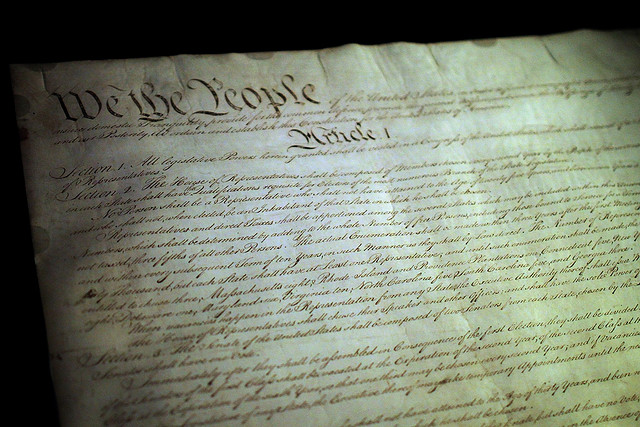Diane’s farewell message
After 52 years at WAMU, Diane Rehm says goodbye.

The preamble and beginning of the original Constitution, in the rotunda of the National Archives in Washington, D.C.
It’s the 150th anniversary of the assassination of President Abraham Lincoln. As the country reflects on his death and legacy, the author of a new book says one basic fact of Lincoln’s life cannot be overlooked: where he is from. Legal scholar Akhil Reed Amar argues that Lincoln’s home in Illinois was key to his views on slavery and secession, making geography central to Lincoln’s contributions to the U.S. Constitution. It’s just one example of how America’s distinct regional differences shape the law of the land. We take a Constitutional road trip with Akhil Reed Amar.
Akhil Reed Amar broke down his new book, “The Law Of The Land,” for the Huffington Post.
Excerpted from “The Law of the Land: A Grand Tour of our Constitutional Republic Hardcover” by Akhil Reed Amar. Copyright 2015. Reprinted with permission from Basic Books.
After 52 years at WAMU, Diane Rehm says goodbye.
Diane takes the mic one last time at WAMU. She talks to Susan Page of USA Today about Trump’s first hundred days – and what they say about the next hundred.
Maryland Congressman Jamie Raskin was first elected to the House in 2016, just as Donald Trump ascended to the presidency for the first time. Since then, few Democrats have worked as…
Can the courts act as a check on the Trump administration’s power? CNN chief Supreme Court analyst Joan Biskupic on how the clash over deportations is testing the judiciary.